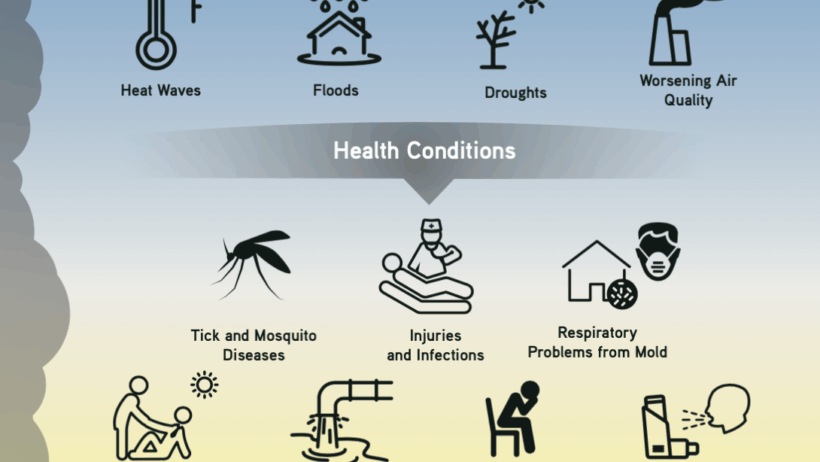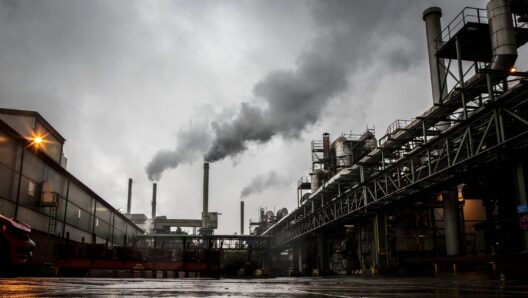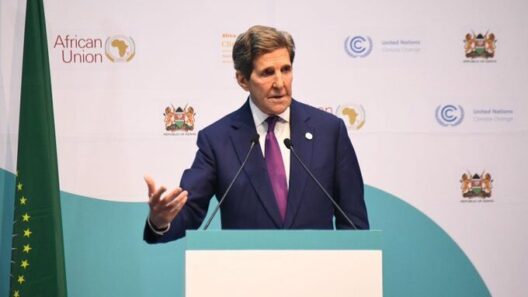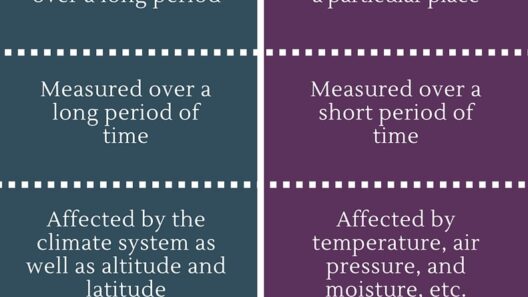The pervasive threat of climate change looms large over our planet, manifesting in a multitude of dire consequences. While its effects may seem distant or abstract to some, the irrefutable reality is that climate change is already reshaping our world. Understanding these impacts is not merely an academic exercise; it is vital for fostering informed public discourse and spurring action. Here, we illuminate ten significant impacts of climate change that deserve urgent attention.
First and foremost, rising global temperatures epitomize the inclination of our climate patterns toward destabilization. The Intergovernmental Panel on Climate Change (IPCC) has consistently reported an alarming uptick in average temperatures, with a notable increase of approximately 1.2 degrees Celsius since the late 19th century. This seemingly negligible shift significantly impacts weather patterns, leading to more frequent and severe heatwaves. Such extreme heat can have catastrophic effects on human health, agriculture, and ecosystems, exacerbating existing disparities in vulnerable communities.
Secondly, melting ice caps and glaciers emerge as a stark and visible manifestation of climate change. The polar regions, once frigid bastions of biodiversity, are experiencing unprecedented thawing. This trend not only contributes to rising sea levels but also threatens unique ecosystems and species that have adapted to these icy environments for millennia. The loss of glaciers jeopardizes freshwater sources for billions of people, particularly in regions where communities rely on glacial meltwater for their daily needs.
The third impact is the alteration of precipitation patterns. Climate change disrupts the delicate balance of rainfall distribution, leading to irregular downpours in some areas and severe droughts in others. This erratic behavior poses significant challenges for agriculture, as both crops and livestock rely heavily on predictable weather patterns. Farmers face an uphill battle, necessitating adjustments to their planting schedules and water management techniques, often leading to diminished food security and increased prices in local markets.
Inextricably linked to disrupted precipitation patterns is the heightened frequency and intensity of extreme weather events. Hurricanes, floods, and wildfires are becoming increasingly common, fueled by warming oceans and shifting atmospheric conditions. The economic toll of such disasters is staggering, costing nations billions in recovery and infrastructure repairs. Additionally, these events cause immeasurable personal suffering, displacing communities and claiming lives. The exponential increase in these catastrophic phenomena demands rigorous climate resilience planning and emergency preparedness.
Another stark reality of climate change is its impact on biodiversity. As temperatures rise and habitats shift or disappear, many species are unable to adapt quickly enough to survive. The phenomenon of species extinction is accelerating at an alarming rate, with estimates suggesting that one million species are currently at risk of extinction. The loss of biodiversity undermines ecosystem stability and resilience, affecting the services those ecosystems provide, such as pollination, water purification, and carbon sequestration.
Furthermore, oceans are experiencing significant changes due to climate change, primarily through increased acidification and warming. The absorption of excess carbon dioxide results in lower pH levels in ocean water, threatening marine life, particularly calcifying organisms like corals and shellfish. Coral reefs, often referred to as the “rainforests of the sea,” are especially at risk, as warmer temperatures induce bleaching, disrupting complex marine ecosystems. A decline in marine biodiversity threatens food security for millions and could destabilize global fisheries, essential for many economies.
The social implications of climate change cannot be overlooked. As natural resources dwindle and disasters become more frequent, socio-political tensions are likely to escalate. Competition for water, arable land, and other essential resources often leads to conflict and mass migrations. Vulnerable nations, particularly in the Global South, bear the brunt of these changes, experiencing heightened economic instability and socio-political unrest. This nexus of climate change and human conflict requires urgent diplomatic and humanitarian responses to foster global cooperation.
On the frontlines of health, researchers have been increasingly cognizant of climate change’s pervasive influence on disease dynamics. The changing climate can extend the range of vector-borne diseases, like malaria and dengue fever, as warmer temperatures encourage the proliferation of disease-carrying insects. Furthermore, air quality deterioration attributable to climate change exacerbates respiratory issues, leading to greater health burdens. It becomes imperative to address these health implications holistically, as they intertwine with broader public health strategies.
The impact on economic systems warrants meticulous examination. The labor market is susceptible to the whims of climatic fluctuations, with outdoor jobs, particularly in agriculture and construction, faced with increased risks due to extreme heat. Additionally, industries reliant on stable natural resources, such as tourism and fisheries, may struggle to adapt to the shifting ecological landscapes. The economic ramifications extend beyond immediate job loss, manifesting as long-term economic instability, particularly for communities whose livelihoods rely on predictable, sustainable practices.
Lastly, the psychological ramifications of climate change emerge as a critical yet often overlooked consequence. The anxiety surrounding existential threats posed by climate change can lead to feelings of helplessness, despair, and eco-anxiety, particularly among younger generations. The pervasive sense of impending doom associated with climate change can adversely affect mental health and community resilience. Addressing this psychological distress necessitates a collective effort to foster environmental stewardship and community action, empowering individuals to become agents of change rather than passive observers.
In conclusion, the implications of climate change are vast and complex, permeating every facet of life on Earth. From rising temperatures and melting glaciers to disruptions in economic systems and biodiversity loss, these impacts cannot be ignored. Addressing the multifarious challenges posed by climate change requires a concerted effort involving individuals, communities, governments, and international organizations. The time for action is now; we must chart a sustainable course for future generations and the health of our planet.








